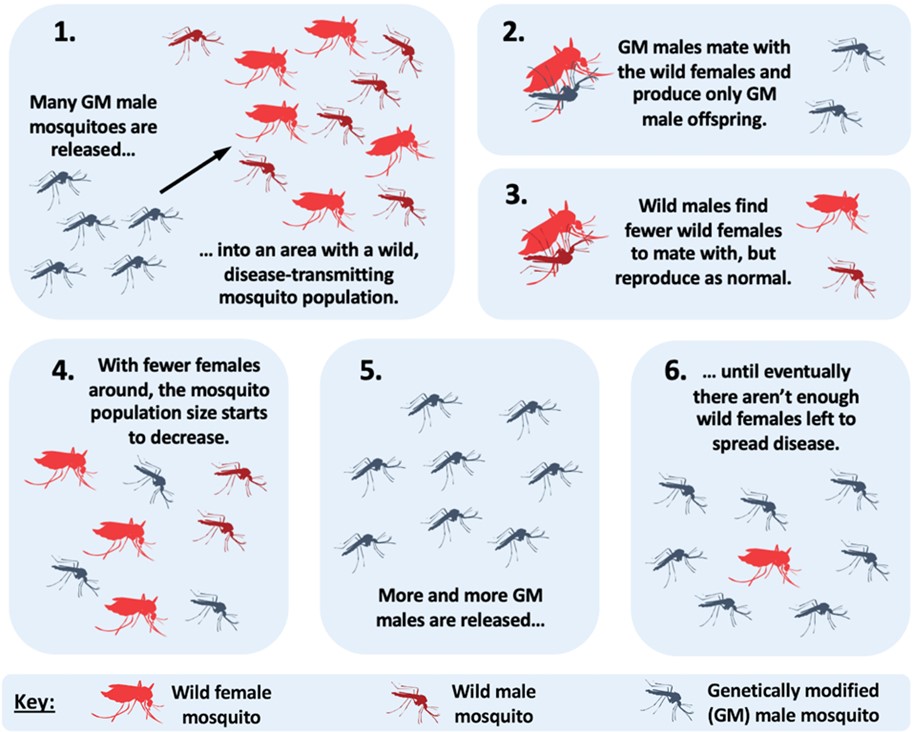ForumIAS announcing GS Foundation Program for UPSC CSE 2025-26 from 27th May. Click Here for more information.
Contents
What is the News?
Oxitec, the UK-based company, has said that the first open-air study of Genetically Modified Mosquitoes(GMM) in the United States has yielded positive results.
What are Genetically Modified Mosquitoes(GMM)?
These are the mosquitoes whose genome has been altered using recombinant DNA technology. Their genome is altered in a way to favour the few desired physiological traits and the generation of desired biological products.
The desired trait of these GMM is to reduce the transmission of mosquito-borne human diseases.
Why were Genetically Modified Mosquitoes(GMM) developed?
Aedes aegypti mosquitoes spread viruses including dengue, Zika, and chikungunya.
Among them, only female mosquitoes bite. They need a blood meal to produce eggs. Male mosquitoes do not bite. They feed on nectar from flowers.
Hence, to reduce the spread of these viruses. GM Mosquitoes have been developed.
How are GM mosquitoes produced and used to control Ae. aegypti mosquitoes?

Scientists produced GM male aegypti mosquitoes eggs in a lab. They programmed these males to carry a gene that they’ll pass to their offspring when they mate in the wild.
The gene is designed to kill female offspring since only female mosquitoes bite and spread disease.
The male offspring live on to pass the gene along when they mate. As each generation mates, more females die, and the A. aegypti population in the area should decrease.
What are the concerns regarding this method?
The concerns range from the modified mosquitoes harming people, their impact on mosquito-eating species and other unintended consequences such as the emergence of a deadly virus.
Source: This post is based on the article “Genetically modified mosquitoes for controlling vector-borne diseases? Successful trial gives hope” published in Down To Earth on 21st April 2022.




